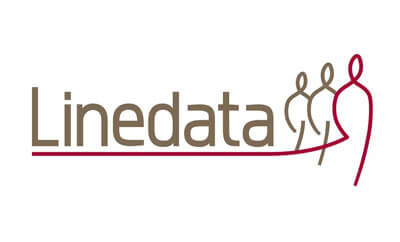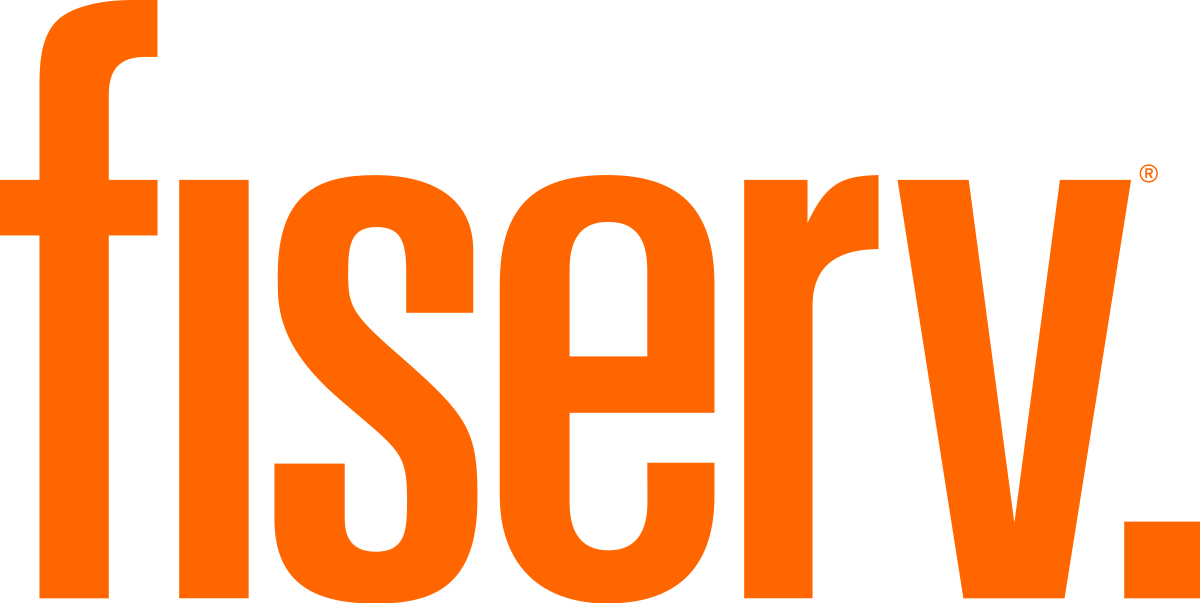Published

Sandra Wróbel-Konior
Content Marketing Specialist at SecurionPay
- 08:00 am

SBI Ripple Asia reports that a consortium of 47 banks have successfully completed a pilot implementation of Ripple in Japan using a cloud-based payments platform. This platform, RC Cloud, is powered by Ripple’s solution and is the first in the world to enable real-time money transfers both domestically and internationally. As a result, the consortium has confirmed that it will move into commercial phase.
“Consortiums are not hard to come by in this industry, but what makes this significant is that these leading Japanese banks are focused on a clear use case and moving blockchain into production,” said CEO of Ripple Brad Garlinghouse. “This is a concrete example that our solution is already transforming how money is sent around the world.”
With 47 banks utilizing Ripple’s solution to enhance their payments system, the consortium has made large strides in moving towards commercialization. Throughout the process, various aspects of the RC Cloud operation have been evaluated including operational risks, regulatory considerations, standardization and potential interfaces to connect with banks’ accounting systems. The consortium also plans to connect with banks globally, continuing to expand the Ripple network.
“Domestic and cross-border payments have been silo processes that are expensive, but RC Cloud allows for a seamless transaction for both types of payments on one platform,” said CEO of SBI Ripple Asia Takashi Okita. “And as we continue to expand our network, we look forward to utilizing Ripple to enhance banks’ transactions across the world.”
The consortium’s achievement is evidence that Ripple’s distributed financial technology includes the only enterprise blockchain solutions for real-time cross-border payments and is a notable milestone for the growth of our global network. Over 90 banks globally are working with Ripple, including top global banks such as Santander, Bank of America and Axis Bank. On top of that, over 30 pilots have been completed and over 10 banks are currently moving into commercial use. Ripple is enabling actual use cases, including the consortium’s successful pilot and its move toward commercialization, bringing the financial industry closer to moving value the way it moves information today.
To learn more about joining Ripple’s growing global settlement network, please contact us.
Japan Bank Consortium member banks:
The Aomori Bank, Ltd.
The Ashikaga Bank, Ltd.
The Awa Bank, Ltd.
AEON Bank, Ltd.
The Senshu Ikeda Bank, Ltd.
The Iyo Bank, Ltd.
Oita Bank Co. Ltd.
ORIX Bank Corporation
The Gunma Bank, Ltd.
The Keiyo Bank, Ltd.
The San-in Godo Bank, Ltd.
The Sikoku Bank, Ltd.
The 77 Bank, Ltd.
THE SHIMIZU BANK, LTD.
The Juroku Bank, Ltd.
Shinkin Central Bank
Shinsei Bank, Limited.
SBI Sumishin Net Bank, Ltd.
Suruga Bank Ltd.
Seven Bank, Ltd.
Sony Bank Incorporated
The Daishi Bank, Ltd.
Daiwa Next Bank, Ltd.
The Chiba Bank, Ltd.
The Chugoku Bank, Limited.
Tsukuba Bank, Ltd.
The Tokyo Star Bank, Limited
THE TOHO BANK, LTD.
THE TOCHIGI BANK, LTD.
THE NISHI-NIPPON CITY BANK, LTD.
The Nomura Trust and Banking Co., Ltd.
THE HACHIJUNI BANK, Ltd.
The Hyakugo Bank, Ltd.
The Hiroshima Bank, Ltd.
The Fukui Bank,Ltd.
North Pacific Bank, Ltd.
THE HOKURIKU BANK, LTD.
Mizuho Bank, Ltd.
THE MICHINOKU BANK, LTD.
Sumitomo Mitsui Trust Bank, Limited.
The Musashino Bank, Ltd.
The Yachiyo Bank, Limited.
The Yamagata Bank, Ltd.
The Yamaguchi Bank, Ltd.
The Bank of Yokohama, Ltd.
Resona Bank, Limited.
Bank of The Ryukyus, Limited.
Related News
- 06:00 am

Azimo, the digital money transfer service operating in Europe, today announced a complete overhaul of money transfer services to the Philippines, with a lightning fast instant service via bank transfer.
BDO Remit, the remittance service of the Philippines’ largest bank BDO Unibank, handles all Azimo transfers to the country. This new service now enables Azimo’s vast user-base to have immediate access to money sent. Transfers are instant via Credit to BDO Kabayan Savings and other BDO Unibank accounts; and 1 hour for cash pick-up transactions to the Philippines.
The Philippines is estimated to have a population of over 100 million* and an overall GDP of almost $300bn. But due to the increasing trend of migrant workers leaving the country in order to find work abroad to support their loved ones, the population is in steady decline, with close to 3 million Filipinos** now living abroad. According to data from the World Bank, Filipinos sent $28.5 billion in personal remittances***, making up just over a tenth of the nation’s GDP.
“The population of the Philippines is in decline year on year with a huge and vibrant diaspora moving away from home in search of a way to support their families.” Said Azimo’s CEO, Michael Kent. “With traditional providers their loved ones would have to wait several days to get much needed support, which, in the case of an emergency or with a bill to pay, is just not good enough. We’re really pleased to be able to offer them a better, faster way to send and receive money that fits their needs”.
This newly refreshed service from Azimo is also infinitely cheaper when compared with traditional services, due to Azimo’s innovative path to transfer, cutting out middle-men and passing on savings directly to the user.
Along with instant bank transfers, Azimo enables Cash Pick-up through more than 8,000 BDO Remit Cash Pick-up locations in the Philippines including SM locations, M. Lhuillier and Cebuana Lhuilier outlets and other rural bank, and pawnshop partners.
With the largest digital network available, Azimo are constantly updating their service, branching out into new areas and finding ways to keep costs low and increase speed and efficiency for their user-base of over 1 million customers connected to the service. For more information on sending to the Philippines, visit the Azimo site.
*http://data.worldbank.org/indicator/SP.POP.TOTL?locations=PH
** https://psa.gov.ph/tags/overseas-filipinos
***http://data.worldbank.org/indicator/BX.TRF.PWKR.DT.GD.ZS
Related News
- 09:00 am

Linedata is the leading solutions provider committed to the investment management and credit industries. Today the company has announced that John Hancock Investments, a leading global financial service, has chosen Linedata Navquest to upgrade its Net Asset Value (NAV) Oversight, NAV Validation, and NAV Contingency capabilities.
Linedata Navquest offers oversight, validation, testing and contingency for the full range of middle office functions developed from more than 70 customizable controls, using a client’s own rules. It automatically "double checks” the NAV produced (internally or externally) by applying a series of customizable and independent controls against the data, mitigating risks associated with producing a timely and accurate NAV. Linedata Navquest also has the ability to highlight the specific NAV component which may be responsible for the discrepancy, supporting remediation.
John Hancock Investments is a premier asset manager and one of America’s most trusted mutual fund families offering more than 200 funds to individuals and institutions. “With Linedata Navquest, we are implementing an automated, scalable solution that affirms our commitment to identifying risk and providing accurate NAVs to our customers and to the market,” said Charles A. Rizzo, CFO, John Hancock Group of Funds.
“Our industry leading solution delivers comprehensive, highly customizable middle office oversight for institutional asset managers,” said Arnaud Allmang, North America Head of Asset Management at Linedata. “Linedata Navquest allows market leaders, like John Hancock, to fully utilize our latest technology to deliver auditable, validated, contingent and oversight NAV solutions in today’s challenging market environment.”
Related News
- 05:00 am

Trustly, a Swedish FinTech company, is delighted to announce 2016 processed payment volumes comprised €3.2 billion. Trustly has now hit accumulated processed payment volumes of €6.5 billion, since the company was established in 2008.
The 122% growth in payments volumes in 2016 comes on the back of Trustly’s expansion to an additional 21 European countries in late 2015. Trustly offers a unique online payment solution to its clients, allowing them to get paid by consumers across all of Europe.
Trustly’s payment solution is proven to drive commercial success for its clients. As an example, Swedish digital bank Avanza enabled Trustly’s real-time deposit service to allow for its customers to top up their accounts from both mobile and desktop in late 2015. Thanks to Trustly’s service, Avanza has since seen a 7% increase in its customer activation rate.
Oscar Berglund, CEO of Trustly, said “We are delighted that our payment solution is increasingly preferred by consumers across the 29 European countries where we provide services, as well as it having a tangible positive commercial impact for our clients. Whether you run an e-shop or a digital.
About Trustly
Founded in 2008, Trustly Group AB is a Swedish FinTech company that makes online banking e-payments fast, simple and secure. The company offers cross-border payments to and from consumer bank accounts at 190 banks in 29 European markets and connects businesses and consumers within e-commerce, travel, gaming and financial services.
FinTechCity London predicts Trustly will revolutionize the financial services sector and in 2016, the newspaper Dagens Industri awarded Trustly a Gasell award for being one of Sweden’s fastest growing companies.
Related News
- 07:00 am

InvestCloud Inc. is a global FinTech firm, has launched its first financial technology accelerator and incubator. Particularly, this is an InvestCloud Innovation Center, with Pacific Design Center headquarters in Los Angeles.
The InvestCloud Innovation Center enables teams from banks, wealth managers and other financial services firms to undertake ‘residences’ to accelerate the development of new apps through access to InvestCloud’s full technology platform, in collaboration with a team of InvestCloud mentors. Residences are also available to FinTech startups looking to build their businesses using the InvestCloud platform.
The Innovation Center echoes InvestCloud’s beginnings in a Californian garage, when a team of six designed, built, and shipped its first product, PlayMyMillions, in just six months. Teams working at the Center will follow this approach, increasing the speed of delivery for digital projects and enabling large financial institutions to work with the flexibility of a startup, while affording massive technology leverage to startups and established firms alike.
John Wise, co-founder and CEO of InvestCloud, said, “The purpose of the Innovation Center is simple: to help both our clients and startups to deliver a new generation of digital solutions whilst eliminating the risk of development and decreasing the time to market.”
Participants will ‘show and tell’ their work on a weekly basis to demonstrate progress to InvestCloud and their own organization. Companies working at the Center can also create sub-teams from their own organization, or utilize InvestCloud’s staff and external partners.
The Innovation Center will also undertake research and investigation projects into the behaviors of high-net-worth individuals and other audience segments during their customer journey. This insight will be shared with participating organizations to better inform the creation of customer experiences.
InvestCloud offers the best environment, incorporating beautifully designed spaces with the highest level of security needed for the financial markets, to create a place where innovation and collaboration occur. In addition, new teams have access to all of our distribution partners and alliances, as well as the ability to connect with our clients, in order to promote and sell their financial apps – another unique approach.
Related News
- 04:00 am

Fiserv, Inc. is world’s major provider of financial services technology solutions. Today it has announced the results of Expectations & Experiences, specifically its quarterly consumer trends survey. The survey concludes that consumers use mixed digital and traditional channels to manage their finances and make payments, with millennials accessing mobile banking nearly three times more than other generations.
While consumer satisfaction remains high when it comes to primary financial organizations, with 76 percent rating them an eight or higher on a scale of zero to 10, many consumers express less satisfaction with their financial health compared to other areas of life.
“The latest Expectations & Experiences survey underscores the day-to-day concerns about money that still loom large for consumers, even as there are more options available than ever before in how they can manage their finances,” said Mark Ernst, chief operating officer, Fiserv. “For banks, credits unions and billers, this is an opportunity to go beyond offering products to creating experiences that are essential to people’s lives, anticipating their needs and giving customers control and confidence in their financial futures.”
Digital Engagement
When it comes to how consumers access financial services, the shift towards self-service in online and mobile channels continues to mature. Online banking websites accessed via a computer remain the most frequent way consumers access their primary financial organization, six times on average in the past month. Among millennials, however, mobile leads in frequency by a significant margin: over a 30-day period, millennials accessed their financial organization via mobile app or browser 8.5 times on average versus 3.1 times for non-millennials.
Overall, while millennials reported lower satisfaction than older counterparts both with their financial health (32 percent vs. 38 percent, respectively) and primary financial organization (69 percent vs. 79 percent, respectively), they are the most engaged segment overall in terms of channel access. With the exception of using their financial institution’s website or visiting a physical location, millennials frequent other channels with greater or equal frequency than older generations.
Traditional methods of managing household finances and payments remain in the mix, even when many people don’t prefer them. For instance, while just 6 percent of consumers cited checks as their most preferred method of payment, 58 percent of consumers said they cashed a check within the last three months. Faster access to funds was identified as a need, with 44 percent of consumers needing immediate access to funds from a check within the last year. Common needs cited for immediate check funds include daily expenses (26 percent), covering bills (20 percent) or to avoid late fees on payments due (10 percent), among those who have ever cashed a check.
Signals of Financial Anxiety
Overall, the survey found consumers are less content with their financial health compared to other areas of life. Just 36 percent of consumers rated satisfaction with their financial health as an eight or higher on a scale of zero to 10, lowest among other rated aspects of life. Larger percentages of consumers rated their satisfaction as an eight or higher for emotional health (52 percent), social life (44 percent) and physical health (43 percent).
If asked to pay back a $500 loan today, 39 percent of consumers would have trouble or would not be able to pay the loan back. If they were to receive a $1,000 in funds unexpectedly, almost half of consumers (47 percent) said they would repay a debt.
Security Remains Top of Mind
Concerns about security of financial data and transactions are a persistent theme throughout the quarterly Expectations & Experiences surveys. When presented with various financial tools from either a financial organization or other company, the tools receiving the most interest were security-related: 65 percent indicate interest in security programs to safeguard mobile activity, while 58 showed interest in biometric methods (voice, fingerprint, palm scan, etc.) to replace passwords for identity verification for online or mobile banking.
People also showed interest in services that enabled them to secure their physical debit and credit cards via mobile devices. Among smartphone users with debit and/or credit cards, 60 percent indicated interest in using their smartphone to respond to credit or debit card fraud alerts, and an almost equal number indicated interest in receiving card transaction alerts for credit cards (61 percent) or debit cards (62 percent) to quickly identify fraudulent transactions.
Related News
- 08:00 am

Today the Consumer Financial Protection Bureau (CFPB) has unveiled a monthly complaint snapshot disclosing consumer dissatisfaction about credit reporting system. The snapshot demonstrates that consumers keep struggling to resolve mistakes on their credit reports.
“Credit reports provide the means for consumers everywhere to take important steps in their financial lives,” said CFPB Director Richard Cordray. “The Bureau will continue to work to ensure that credit reports are accurate and when disputed issues arise on credit reports consumers are able to resolve them quickly and with little hassle.”
Category Spotlight: Credit Reporting
Credit reporting companies track the credit history and other information about consumers who are active in the financial marketplace. The credit reports produced by the reporting companies are used to judge a consumer’s eligibility to take out a mortgage, buy a car, and even get a job in some instances. As of Feb. 1, 2017, the Bureau had handled approximately 185,700 credit-reporting complaints. Some of the findings in the snapshot include:
- Consumers report problems disputing complaints on their credit reports: Complaints submitted to the Bureau indicate that consumers continue to experience difficulties when submitting disputes to credit reporting companies.
- Consumers complain about inaccurate information on credit reports: Consumers submit a high number of complaints about inaccurate personal information on their reports. Frequently consumers state that incorrect or unrecognized names and addresses appear on their reports.
- Consumers report confusion about credit scoring: Consumers continue to be confused over the variety of scores and scoring “factors” that accompany credit score information. Consumers frequently express confusion when they receive varying scores from different reporting agencies.
National Complaint Overview
As of Feb. 1, 2017, the CFPB has handled approximately 1,110,100 complaints nationally. Some of the findings from the statistics being published in this month’s snapshot report include:
- Complaint volume: For January 2017, debt collection was the most-complained-about financial product or service. Of the approximately 29,000 complaints handled in January, there were 7,730 complaints about debt collection. The second most-complained-about consumer product was student loans, which accounted for 5,389 complaints. The third most-complained-about financial product or service was credit reporting, accounting for 4,620 complaints.
- Product trends: In a year-to-year comparison examining the three-month time period of November to January, student loan complaints showed the greatest increase—388 percent—of any product or service. The Bureau received 497 student loan complaints between November 2015 and January 2016, while it received 2,425 complaints during the same time period a year later. This spike in complaints came around the time the CFPB took a major enforcement action against student loan servicer Navient. Additionally, in February 2016, the Bureau expanded the student loan intake form to include federal student loans.
- State information: Georgia, South Dakota, and Mississippi experienced the greatest year-to-year complaint volume increases from November 2016 to January 2017 versus the same time period 12 months before; with Georgia up 59 percent, South Dakota up 43 percent, and Mississippi up 34 percent.
- Most-complained-about companies: The top three companies that received the most complaints from September through November 2016 were Wells Fargo, Equifax, and TransUnion.
Related News
- 09:00 am


Mastercard today announced a partnership with Getir that will introduce a payment experience for Getir's bot for Facebook Messenger.
Masterpass, the Mastercard digital payment solution and Getir, the pioneer of mobile retail, now offer a brand new shopping experience in Turkey. With this new solution, customers can use Getir’s bot for Messenger to choose products, place an order, and now make payments easier and secure, all without ever leaving the chat window. Customers simply search for ‘Getir’ in Messenger, chat with an intelligent bot in a natural, conversational way, and make a secure payment with Masterpass.
Customers can receive 10-minute delivery from Getir’s 600+ everyday items using Messenger, all the while making seamless one-click payments through Masterpass.
With Masterpass payment technology and Getir’s unique delivery model (1 million deliveries as of January 2017), the two technology companies have streamlined shopping.
This is the first use of Masterpass payment technology using a bot for Messenger.
Masterpass is a digital payment service from Mastercard that enables consumers to look no further than their own trusted bank to make fast, simple and secure digital payments – across devices and channels – anywhere they want to shop: online, in-app, and in-store using contactless technology. Masterpass makes shopping easier than ever, and leverages the most advanced methods of payment security available today.
Related News
- 04:00 am

Leading cyber-security software specialist ZoneFox, has today closed a £3.6 million Series A funding round. The round is led by Scottish business angel investment syndicate, Archangels, with co-investment from The Scottish Investment Bank, and TriCap and follows the £2.5 million in seed funding the company has taken since 2010.
Based in Edinburgh, ZoneFox focuses on providing world-class security systems that effectively combat the growing issue of insider threats to businesses across the financial, pharma, gaming and other business sectors. Its customers include healthcare firm Craneware, Zenith Bank and Rockstar Games. It recently launched a new machine based learning solution, called ZoneFox Augmented Intelligence (AI). The product, which is the most advanced of its kind to be developed in the UK, has been created over the course of six years and is targeted at a wide range of business sectors.
This funding, which is the largest round ever to be led by Archangels, will be used to grow the business over the next year and beyond. As well as continued product development and innovation, ZoneFox will triple its headcount to 30 staff by the end of 2017, move into a new HQ in Edinburgh and also open a London office, where an extension of its sales and tech team will be based.
The announcement of this Series A round comes on the back of a strong 12 months for ZoneFox, which is headed up by Dr. Jamie Graves, a PhD graduate from Edinburgh Napier University. ZoneFox grew by 400% in revenue terms and appointed former BT and O2 Board Director, Steve Davies, as Chairman. It also won two Scottish Cyber-Security Awards, at the inaugural ceremony, for International Contribution to Cyber-Security and the overall Champion of Champions trophy.
Commenting on the funding round, ZoneFox CEO Graves said: “ZoneFox has been working exceptionally hard over the last six years to develop a product that will provide the modern enterprise with a truly 21st Century cyber-security solution. Insider threats are a serious problem for the global enterprise. Such is the sophistication of these attacks and the methods used by cyber-criminals, the human mind alone can no longer be expected to monitor and combat such threats alone.
“We have established a strong reputation and generated a lot of interest from some global organisations, which have in turn become clients. Having the funding and support of Archangels, The Scottish Investment Bank and TriCap will allow us to continue to grow and develop ground-breaking solutions that will protect businesses.”
Niki McKenzie, Investment Director at Archangels added: “Archangels’ investors were keen to lead this round of follow on funding in an area that is currently underserved. Customers using ZoneFox report that the product is helping them to shape more robust, tailored and effective IT policies, alerting them to security threats from within their own walls.”









